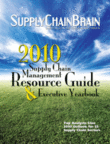
Visit Our Sponsors |
|
|
|
|
|
|
|
|
|
|
|
|
|
|
|
|
|
|
|
|
|
|
|
|
|
|
|
|
|
|
|
|
|
|
|
|
|
|

On September 8, 2009, the FDA launched the Reportable Food Registry, an electronic portal through which food facilities report the reasonable probability that use of, or exposure to, a food will cause serious adverse health consequences or death to humans or animals.
The FDA's goal is to prevent harm to consumers by having all regulated companies commit to compliance. Strengthening enforcement will enable the agency to quickly intercept unsafe or fraudulent products to contain injury.
Procedural actions instituted to mitigate risk and improve the effectiveness of the FDA's enforcement system include a new close-out procedure that adds a more effective and fairer procedure to the regulatory process.
Post-inspection deadlines: Once the FDA provides inspection findings identifying a serious problem, the firm will generally have no more than 15 working days in which to respond before the FDA proceeds with a warning letter or enforcement action.
Speed issuance of warning letters: The process of issuing warning letters will be streamlined by limiting warning-letter review to significant legal issues.
Collaborate with regulatory partners: To develop effective risk control and enforcement strategies, local, state and international officials will have greater authority to act quickly to protect food safety. The FDA will have responsibility for alerting the public and preparing longer-term response.
Prioritize followup: After issuing a warning letter or a major product recall occurs, the agency will make it a priority to follow up promptly with appropriate action.
Act swiftly and aggressively: The FDA will discontinue the practice of issuing multiple warning letters to non-compliant firms before taking enforcement action.
Close-out Process: If the FDA can determine, usually based on a re-inspection, that a firm has fully corrected the violations raised in a warning letter, the agency will provide a close-out letter. This indicates that the firm has successfully addressed the issues in question.
The Outlook
Several pieces of legislation currently under consideration by the U.S. Congress have potential implications for any concern that supplies food, including impact on their supply chain operations. Comprehensive food safety reform mandating that firms have food safety plans in place and granting the agency greater authority to initiate mandatory recalls has bipartisan support and backing from food industry leaders and consumer advocacy groups. Regardless of the pending legislation, the agency head is proceeding with plans to hire 350 new employees for food safety, 125 of which will be dedicated field inspectors. With these additional resources, the agency plans to increase the total number of inspections to 9000 in 2010.
RELATED CONTENT
RELATED VIDEOS
Timely, incisive articles delivered directly to your inbox.






